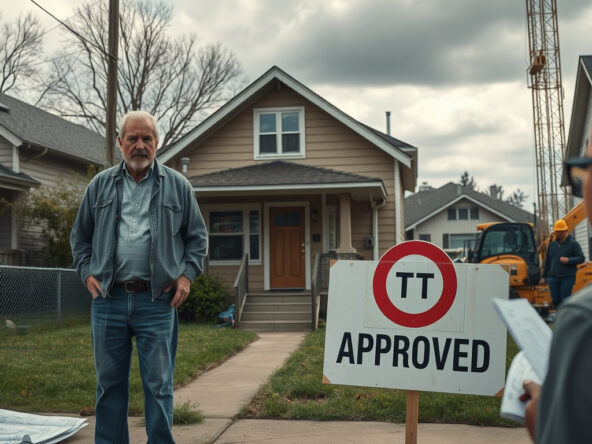Planning Approval Granted for Home Extension Amid HMO Concerns in Solihull
The planning committee in Solihull approved the extension; the extension converts a garage on Shalford Road into a space that functions as both gym and study. Neighbours—thirteen residents during consultation—objected as they linked the application directly to occupancy growth and parking strain.
Neighbour Opposition and HMO Fears
Residents voiced objection; their concern attached tightly to potential HMO evolution. One neighbour detailed the parking strain on Shalford Road, noting that narrow driveways and reliance on on-site parking combine with the extension to augment pressures, should occupancy later multiply.
Planning Committee’s Deliberation
The committee’s decision rested solely on the current application; the application did not include a change of use. The chair, using a cautionary remark about a “backdoor” route to HMO conversion, kept this remark separate from the formal request. Conditions ensured the new structure serves only as ancillary accommodation and not as extra living space. The concerns about future uses now remain linked to permitted conversion rights for modest HMOs—residents connected this possibility to existing regulatory allowances for up to six residents without full permission.
Limitations on Removing Permitted Development Rights
Local attempts to curtail rights that allow similar conversions proved unworkable; officers insisted that numerous local properties display similar conversion potential under national policy. This regulatory framework ties these rights closely to the architectural and occupancy context, a factor the local authority cannot disentangle from broader national parameters.
Outcome and Implications for Property Investors
The extension received unanimous approval even as the planning chief’s caution underscored inherent hesitations; neighbours were instructed to report any deviation from ancillary use to councillors, a measure set to activate enforcement. Investors and homeowners—whose interests now interlock with complex statutory procedures and implicit occupancy escalation—must note that planning dynamics remain bound by national conversion rights, a reality that local controls cannot fully isolate.
Summary
The extension in Solihull obtained approval despite intense local objection related to potential HMO conversion and parking limitations. The committee confined its review to the presented application, attaching strict use conditions while national policies enable future multi-occupancy changes. Stakeholders in property must absorb these planning constructs, particularly in areas where existing occupancy regimes and constrained parking merge into challenging regulatory outcomes.



